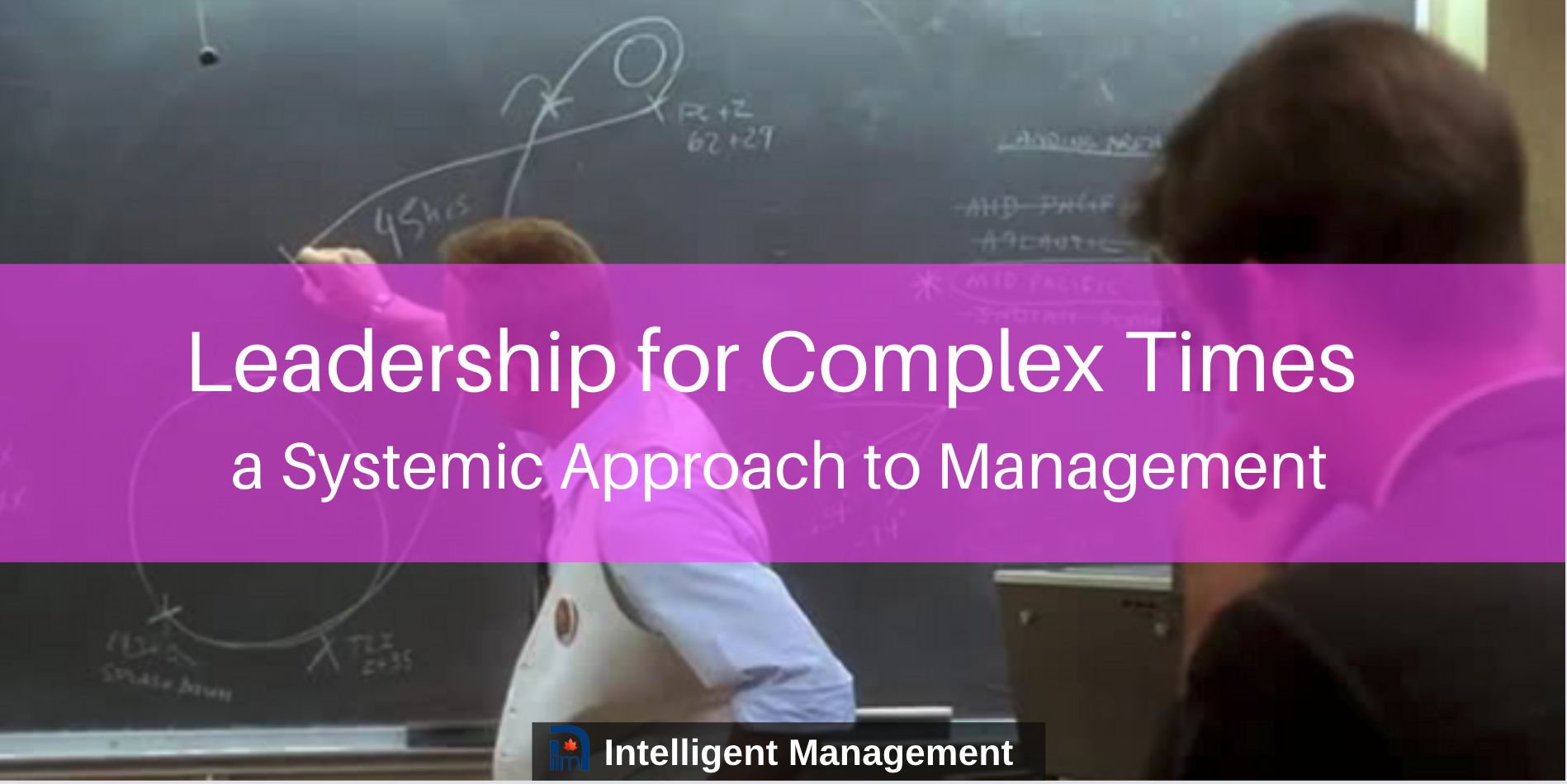
As usual, the Intelligent Management team are straddling two continents and the travel commitments have kept us occupied. To continue the flow with this series on the Ten Steps of the Decalogue Method, a systemic method for management, we’re inserting a short piece about leadership that was written just as the world was in the throes of a previous global crisis. The message is more valid than ever for our complex times.
Decalogue Leadership
A “Decalogue Leader” is capable of painting a vision that everyone in the organization wants (and has the possibility) to follow; he/she has the ability to build and enforce a comprehensive plan to achieve that vision and has the knowledge to guide the transformation (people, organization, methods, etc.) entailed in the plan. Dr. Deming describes the knowledge that a Leader needs to have in his book ‘The New Economics’: 1) Understanding of systems (and their interdependencies); 2) Theory of Variation (elements); 3) Theory of Knowledge (foundational principles); 4) Psychology (of the individual and of the organization). A leader need not be an expert in these fields but must have a solid grasp of how they are interrelated.
The Decalogue “powers” these foundational elements of knowledge with a wealth of proven practical applications for managing production, new product development, supply chain, marketing, sales, etc. Moreover, The Decalogue provides guidance for the “intelligent management” of any organization by integrating in its approach the Thinking Processes (TP) from the Theory of Constraints.
The Thinking Processes, described for the first time by Dr. Goldratt in his novel ‘It’s not Luck’ and illustrated also in our book ‘Deming and Goldratt’ (Lepore & Cohen), can support very effectively all the aspects of the human cognition needed to follow through a transformational project.
Towards a meaningful Leadership
“Intelligent management” is the way I chose to define the set of managerial actions that can sustain the challenge of the intellect as opposed to the ones we take without thinking; every day we witness the destruction of wealth that follows the application of unchallenged, flawed economic and philosophical beliefs.
Intelligent management is closely linked to the idea that life has a purpose higher than the satisfaction of personal material needs and wants; people’s lives are in some way interconnected and the only possible viable solutions to problems must be win-win. Intelligent management is rooted in the belief that cooperation and not competition is the way to grow and prosper in a sustainable way. Intelligent management leverages science and ethics to cope with the complexity of organizational systems. Intelligent management and its engine, The Decalogue, tackle the issue of continuous innovation of ideas, products and processes and seeks the systematic search for opportunities where many only see obstacles.
by our Founder, Dr. Domenico Lepore, 20th August 2009
See Part 6 of this series ‘Create Stability and Predictability in Your Organization by Understanding Variation‘
PREVIOUS POSTS IN THIS SERIES:
Radically Improving Organizational Performance – A Systemic Approach to Management Part 1
To find out more about ten guided steps to a systemic leap for your company, contact Angela Montgomery at intelligentmanagement@sechel.ws
SCHEDULE AN INTRODUCTORY CALL WITH US
Intelligent Management works with decision makers with the authority and responsibility to make meaningful change. We have helped dozens of organizations to adopt a systemic approach to manage complexity and radically improve performance and growth for 25 years through our Decalogue management methodology. The Network of Projects organization design we developed is supported by our Ess3ntial software for multi-project finite scheduling based on the Critical Chain algorithm.
See our latest books Moving the Chains: An Operational Solution for Embracing Complexity in the Digital Age by our Founder Dr. Domenico Lepore, The Human Constraint – a digital business novel that has sold in 43 countries so far by Dr. Angela Montgomery and ‘Quality, Involvement, Flow: The Systemic Organization’ from CRC Press, New York by Dr. Domenico Lepore, Dr. .Angela Montgomery and Dr. Giovanni Siepe.






Leave a Reply